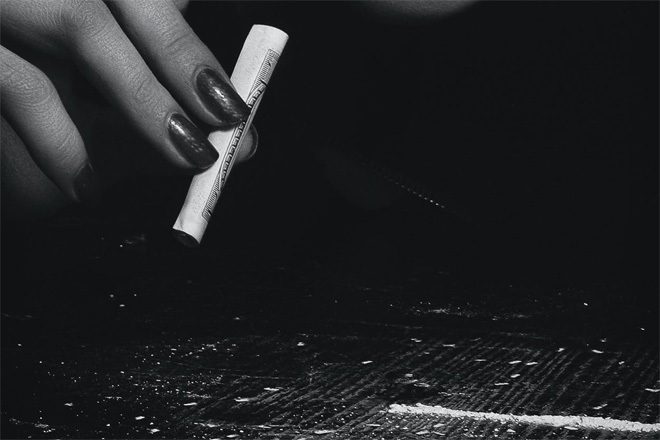Boris Johnson is planning to persuade people to stop using cocaine
The Prime Minister is planning an advertising campaign to warn people against using recreational drugs

Prime Minister Boris Johnson is planning an advertising campaign to persuade people to stop using cocaine and other recreational drugs.
The campaign will take place across billboards and posters as well as radio and TV adverts and will aim to make doing drugs such as cocaine as socially unacceptable as drink driving, with a focus on "middle class drug use" which the government argues is funding gang activity and violent crime across the UK.
Read this next: How drugs won the war on drugs
The Times reports that the Prime Minister has taken inspiration from previous public awareness campaigns run by the government that have successfully influenced public attitude toward drink driving and road safety.
A source speaking to the paper says that there have been discussions between Downing Street and the Home Office about discouraging people from using recreational drugs and that Boris Johnson wants to "make it socially unacceptable to do drugs".
Read this next: Insta-gram: How British cocaine dealers got faster and better
The campaign is reported to be launching later this year and will target the "demand side" of the UK drugs trade. £65 million has already been recently invested into police forces around the country to combat the "supply side" run by drugs gangs.
This isn't the first time Conservative politicians have been linked to cocaine – Prime Minister Boris Johnson has admitted to trying cocaine at university (he attended Oxford) while one of his cabinet ministers, Michael Gove, has also admitted to using the drug. In 2015, a senior advisor to then Chancellor George Osborne was filmed smoking crack cocaine.
Read this next: The rise and fall and rise of ketamine
Drugs commentators such as Mixmag contributor Max Daly have questioned the government's link between "middle class drug use" and gang violence in the UK, saying buying drugs such as cocaine actually has more impact on its country of origin.
The campaign is also the latest battle in "the war on drugs" which has been increasingly ineffective over the last decade as a recent feature by Mixmag investigates.
Read this next: Get the best of Mixmag direct to your Facebook DMs

Mixmag will use the information you provide to send you the Mixmag newsletter using Mailchimp as our marketing platform. You can change your mind at any time by clicking the unsubscribe link in the footer of any email you receive from us. By clicking sign me up you agree that we may process your information in accordance with our privacy policy. Learn more about Mailchimp's privacy practices here.

